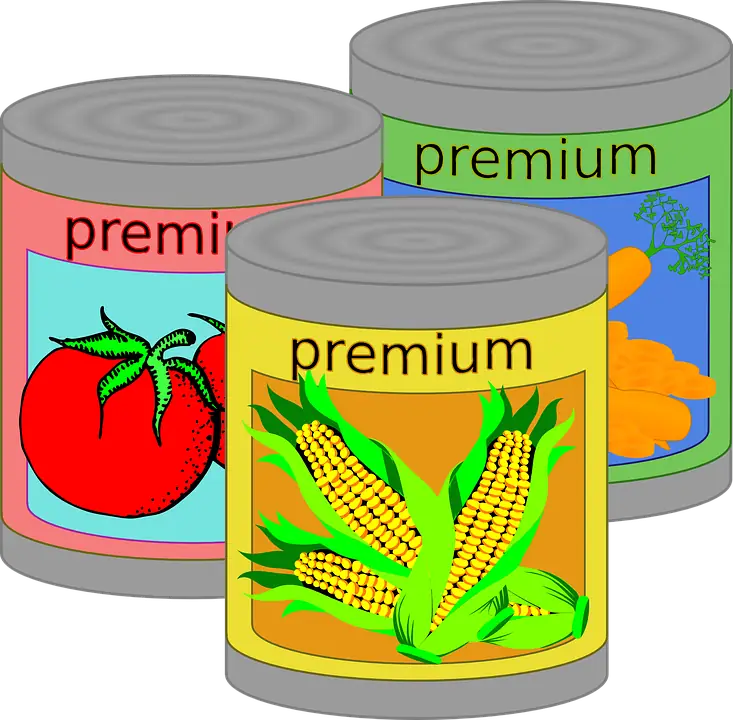Make Canned Food Part Of Your Emergency Plan

There is absolutely nothing wrong with this approach. These foods will last a long time and fit the bill perfectly. If you decide to go that route more power to ya. I would suggest you at least consider starting out with a different tack, canned food.
Why canned food? Because canned food is food that you already eat and you can save some money in the process. The canned food might or might not last as long as the survival food storage items, but canned food last a long time. How long they last is an interesting topic without a simple one size all fits cans. Typically you should expect canned foods to last for at least 3 years.
You might be thinking, "I don't want to take chances or spend time trying to figure out how long my cans will last" so, why the heck are you recommending I start with canned foods?
The answer is simple because there is no need for these canned foods to last that long. You will eat them regardless if there is an emergency prompt their usage. Unlike Emergency specific foods that sit in a closet untouched until they are needed, canned foods will be used for everyday use.
If you err on the side of caution and only want to keep a can of spaghetti sauce for two years, here is the process. How often do you eat spaghetti? If you fix spaghetti once a month, then you would build up your canned spaghetti sauce to a number of 24 cans so that you will always have a two-year supply.
Quit buying when you find you can't eat an item before it expires, which is different from Best By dates and expiration dates printed on some products. Those dates are conservative to the extreme.
You can simply have a designated spot in your pantry for a particular can and put the newly purchased cans at the back. Use the most forward can first. If you use can "A" twice as often as can "B" then you will need to build can "A" to double the number of can "B".
It really can be as simple as just buying an extra can or two when you are grocery shopping until you reach a point where your cans are getting past their "might be to old" date.
If you want to get more high tech, you can purchase or build a first in first out canned food storage system. If you don't know what this is just do a search for "FIFO can" and you will see lots of examples.
Once you have your inventory filled for the designated years (2,3 or 5) you are set with a large amount of food to see you through emergencies. Your expense is upfront, but can be spread out over time and in the long run as food prices increase you should actually save money in the long-term.
- Don't buy dented cans.
- Store cans in a cool place not exposed to sun.
- Never eat from a bulging can.
- Do not allow canned foods to freeze.
- Don't select low sodium cans except for a medical condition.
- Don't forget to have a manual can opener.
- Don't overload shelves.
- Stretch supply by supplementing it when you can.
